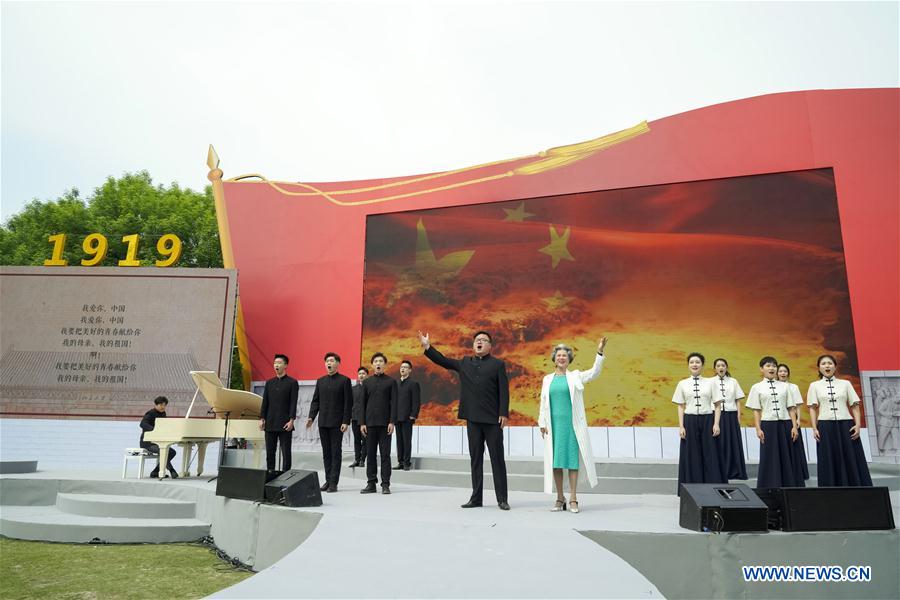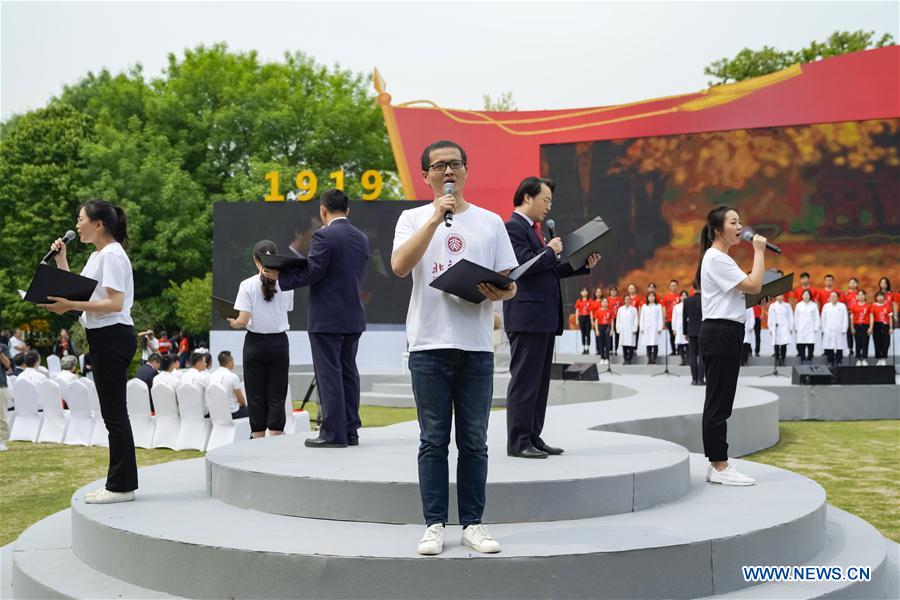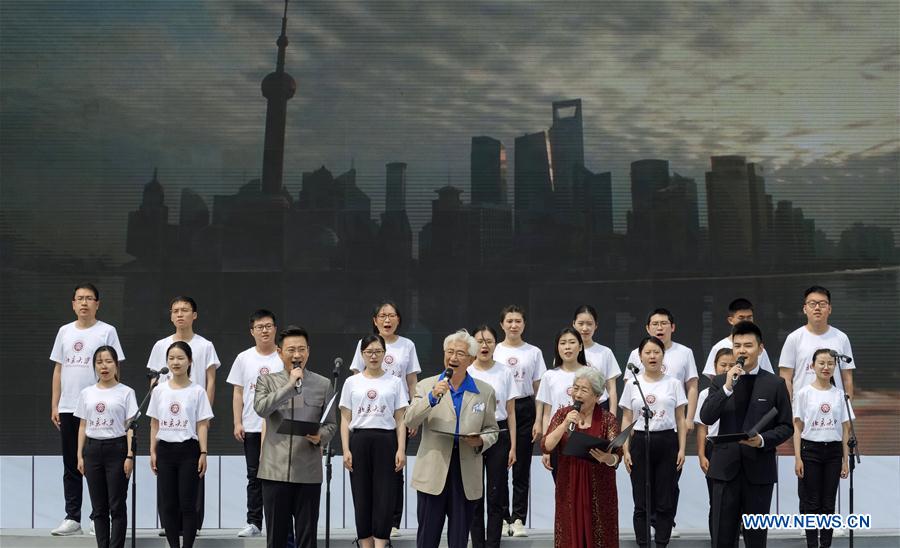Poetry recitation concert marking centenary of May Fourth Movement held in Beijing
Xinhua
1556984118000

Performers sing a song during a poetry recitation concert to mark the centenary of the May Fourth Movement in China at Peking University in Beijing, capital of China, May 4, 2019. Saturday marks the centenary of the May Fourth Movement in China. The May Fourth Movement started with mass student protests on May 4, 1919, against the government's weak response to the Treaty of Versailles that imposed unfair treatment on China and undermined the country's sovereignty after World War I. It then triggered a national campaign to overthrow the old society and promote new ideas, including science, democracy and Marxism. (Xinhua/Shen Bohan)

People perform during a poetry recitation concert to mark the centenary of the May Fourth Movement in China at Peking University in Beijing, capital of China, May 4, 2019. Saturday marks the centenary of the May Fourth Movement in China. The May Fourth Movement started with mass student protests on May 4, 1919, against the government's weak response to the Treaty of Versailles that imposed unfair treatment on China and undermined the country's sovereignty after World War I. It then triggered a national campaign to overthrow the old society and promote new ideas, including science, democracy and Marxism. (Xinhua/Shen Bohan)

Artist Chen Duo (2nd L, front), Hong Yun(2nd R, front) and students from Peking University chant a poem during a poetry recitation concert to mark the centenary of the May Fourth Movement at Peking University in Beijing, capital of China, May 4, 2019. Saturday marks the centenary of the May Fourth Movement in China. The May Fourth Movement started with mass student protests on May 4, 1919, against the government's weak response to the Treaty of Versailles that imposed unfair treatment on China and undermined the country's sovereignty after World War I. It then triggered a national campaign to overthrow the old society and promote new ideas, including science, democracy and Marxism. (Xinhua/Shen Bohan)


